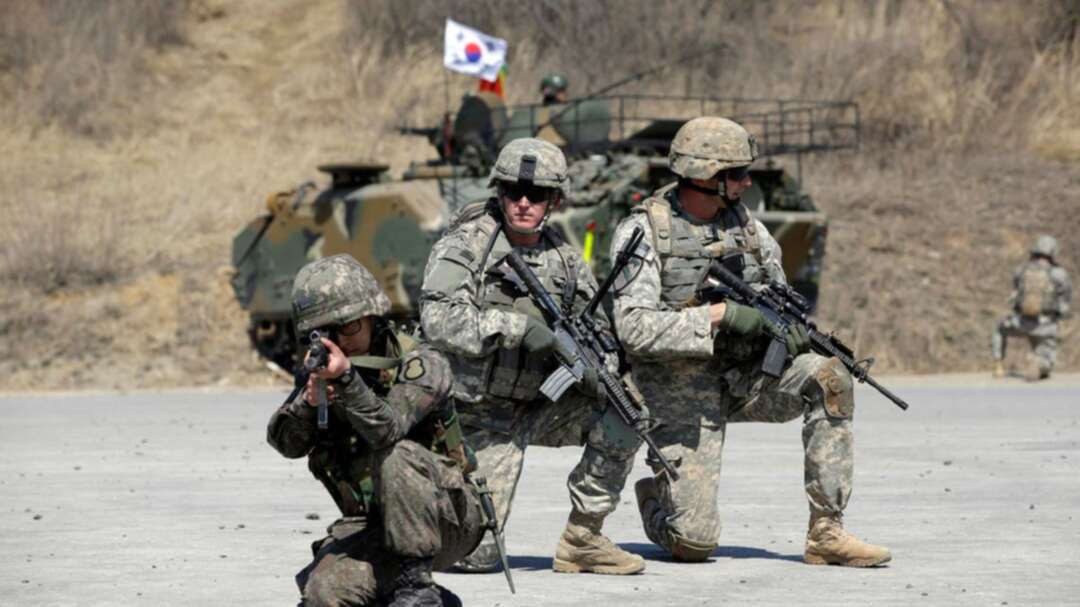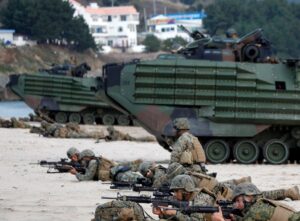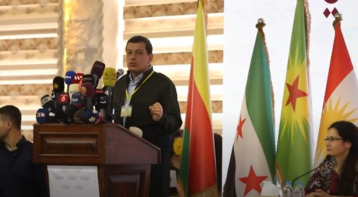-
US troop presence to cost South Korea 13.9 percent more

South Korea has agreed to pay 13.9 percent more towards the cost of the US troop presence on the peninsula, its foreign ministry said Wednesday, in a six-year deal resolving an issue that festered under the Trump administration.
The financial dispute had bedeviled the two allies' security alliance after former president Donald Trump -- who had a transactional approach to foreign policy -- repeatedly accused South Korea of freeloading.
Washington stations around 28,500 troops in South Korea to defend it from the nuclear-armed North Korea, which invaded the South in 1950, and protect US interests in northeast Asia.
Under the new deal, Seoul has agreed to pay 1.18 trillion won ($1.03 billion) for 2021, with annual increases thereafter linked to its defense budget.
The sum represents a 13.9 percent increase on the roughly $920 million Seoul was paying under the previous agreement, which expired in 2019 -- but is a far cry from the Trump administration's initial demand of $5 billion a year.
 Soldiers from the U.S. Marine Corps take part in a U.S.-South Korea joint landing operation drill along the shore in Pohang, about 370 km (230 miles) southeast of Seoul, November 4, 2009. (File photo: Reuters)
Soldiers from the U.S. Marine Corps take part in a U.S.-South Korea joint landing operation drill along the shore in Pohang, about 370 km (230 miles) southeast of Seoul, November 4, 2009. (File photo: Reuters)The new pact “again reaffirmed the need for a stable presence of US troops in Korea,” Seoul's foreign ministry said in a statement, adding it resolved a vacuum that had lasted for about 15 months.
Both governments announced earlier this week that they had reached an agreement in principle, but the amounts involved were only confirmed on Wednesday.
The new deal must still be approved by the South Korean legislature.
The agreement came as Seoul and Washington kicked off their annual military training on Monday, which has been scaled down from the usual level due to the pandemic, with no large-scale physical troop involvement.
The nine-day exercise is still likely to infuriate North Korea, which has long considered such drills rehearsals for invasion.
North Korea has put itself under strict self-imposed isolation to try to protect itself against the pandemic, adding to the pressure on its moribund economy.
Analysts will be watching to see whether Pyongyang will use the military drills to launch provocations against Washington as it seeks to test the new Biden administration.
source: AFP
Image source: AP
Levant
You May Also Like
Popular Posts
Caricature
BENEFIT Sponsors BuildHer...
- April 23, 2025
BENEFIT, the Kingdom’s innovator and leading company in Fintech and electronic financial transactions service, has sponsored the BuildHer CityHack 2025 Hackathon, a two-day event spearheaded by the College of Engineering and Technology at the Royal University for Women (RUW).
Aimed at secondary school students, the event brought together a distinguished group of academic professionals and technology experts to mentor and inspire young participants.
More than 100 high school students from across the Kingdom of Bahrain took part in the hackathon, which featured an intensive programme of training workshops and hands-on sessions. These activities were tailored to enhance participants’ critical thinking, collaborative problem-solving, and team-building capabilities, while also encouraging the development of practical and sustainable solutions to contemporary challenges using modern technological tools.
BENEFIT’s Chief Executive Mr. Abdulwahed AlJanahi, commented: “Our support for this educational hackathon reflects our long-term strategic vision to nurture the talents of emerging national youth and empower the next generation of accomplished female leaders in technology. By fostering creativity and innovation, we aim to contribute meaningfully to Bahrain’s comprehensive development goals and align with the aspirations outlined in the Kingdom’s Vision 2030—an ambition in which BENEFIT plays a central role.”
Professor Riyadh Yousif Hamzah, President of the Royal University for Women, commented: “This initiative reflects our commitment to advancing women in STEM fields. We're cultivating a generation of creative, solution-driven female leaders who will drive national development. Our partnership with BENEFIT exemplifies the powerful synergy between academia and private sector in supporting educational innovation.”
Hanan Abdulla Hasan, Senior Manager, PR & Communication at BENEFIT, said: “We are honoured to collaborate with RUW in supporting this remarkable technology-focused event. It highlights our commitment to social responsibility, and our ongoing efforts to enhance the digital and innovation capabilities of young Bahraini women and foster their ability to harness technological tools in the service of a smarter, more sustainable future.”
For his part, Dr. Humam ElAgha, Acting Dean of the College of Engineering and Technology at the University, said: “BuildHer CityHack 2025 embodies our hands-on approach to education. By tackling real-world problems through creative thinking and sustainable solutions, we're preparing women to thrive in the knowledge economy – a cornerstone of the University's vision.”
opinion
Report
ads
Newsletter
Subscribe to our mailing list to get the new updates!






















